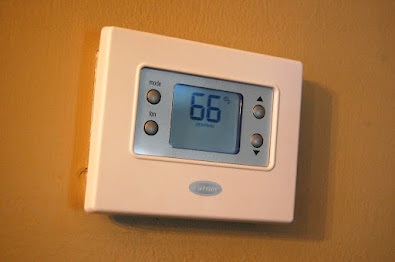Tips For Fixing A Loud Gas Furnace
Tips For Fixing A Loud Gas Furnace
If your home is plagued with a loud gas furnace, you can take some simple steps to fix the issue. Furnace noises can be caused by several issues, from a clogged filter to bad bearings. But, in most cases, fixing the problem is as simple as taking a few small steps to address the underlying issue. Here are six tips for fixing a loud gas furnace:
Fixing A Loud Gas Furnace
1. Check for leaks
One problem that may contribute to a noisy furnace is a leaky ductwork system. If your system leaks, air will escape into the room instead of circulating inside the house. This causes your furnace to run longer than necessary since the blower fan must work harder to move the same air volume. If you notice a draft in your furnace room, check for insulation gaps here and there and seal them up.
2. Replace filters
Another common problem that may contribute to the noisy furnace is dirty filters. Filters catch dust particles that accumulate themselves. These particles can cause your furnace to run too often and too fast. In addition, the dust gets trapped within the filter until it becomes blocked and stops working correctly. Therefore, replacing the filters with clean ones should help quiet down your furnace. The next you need to replace your filters, consider getting a new set of filters. There is no point in replacing old filters that haven't done their job.
3. Change out coils
Also known as the heat exchangers, these parts of the furnace are responsible for transferring heat from the burner assembly to the air. Unfortunately, coil burners tend to become clogged over time, and this can prevent the proper circulation of air. As a result, your furnace runs faster to compensate for the lack of airflow. Although coil burners are relatively expensive, changing them out every two years is still a good idea.
4. Clean vents and registers
It's important to remember that a furnace isn't a completely sealed unit. Air can enter and exit the furnace via vents and registers. These openings allow air to flow into and out of the furnace. Unfortunately, many homeowners forget about checking for clogs here and there during cold weather. Checking each vent and register before turning on your heater can save you money in the long run.
5. Adjust thermostat settings
In addition to using an air purifier, adjusting your thermostat settings can help reduce the noise associated with your furnace. By lowering the temperature setting, you're allowing your furnace to circulate less air. In addition, lower temperatures mean fewer fans running at higher speeds.
6. Use smaller appliances
Finally, try switching to smaller models if you use large appliances such as refrigerators and stoves. They're typically more efficient and, therefore, require less electricity. So, if you've got a larger appliance, you may think about trading it in for something smaller.
Hopefully, following these steps will help keep your furnace running efficiently and quietly during the summer months.




Comments
Post a Comment